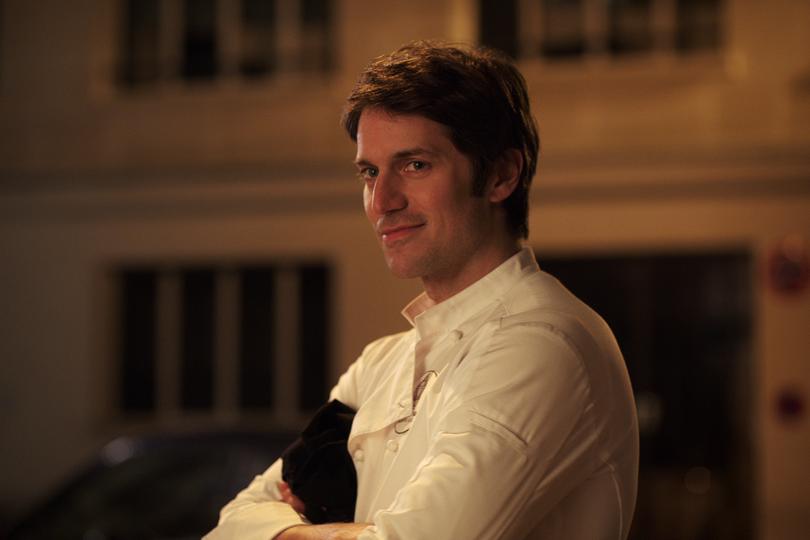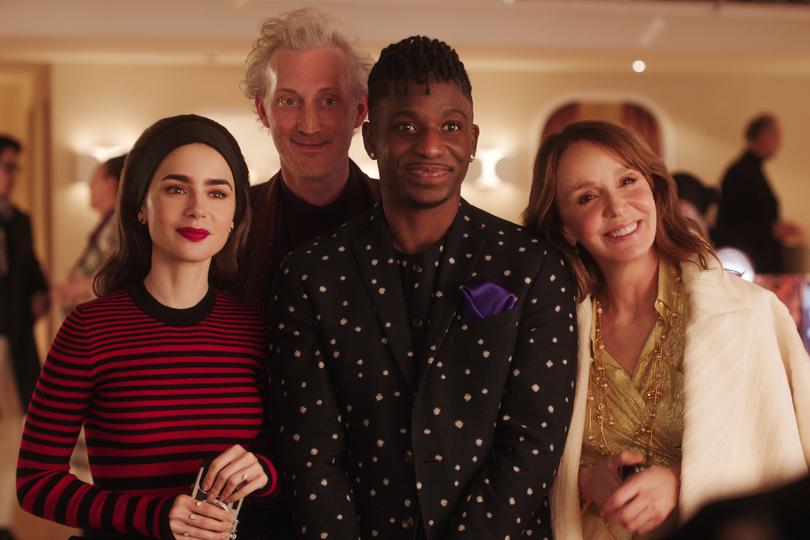Emily in Paris season four: The show we love to hate and hate to love is back. Send help
Emily in Paris has returned for its fourth season and continues to be one of the most compulsive and infuriating TV shows we can’t stop watching. We’re just gluttons for punishment.

There’s a term in storytelling called “plot armour”. What it means is that a character, usually the lead, is protected from harm and death that would’ve killed anyone else.
Think of Eddie Murphy’s Axel Foley being sprayed with bullets from an automatic weapon by several goons, but none nick even his arm. Or James Bond, surviving every dangerous scenario in 25 movies (except for, well, the ending of No Time to Die).
Plot armour usually refers to death-defying turns, but it could be applied to Emily Cooper, the hero of Emily in Paris. No one is trying to kill or maim her – yet — but this is a character who never has to face any consequences for her cooked actions.
Sign up to The Nightly's newsletters.
Get the first look at the digital newspaper, curated daily stories and breaking headlines delivered to your inbox.
By continuing you agree to our Terms and Privacy Policy.And there are so many times she should’ve been fired, dumped or deported.
If that’s not the definition of plot armour, then what is?

Emily is Paris has returned for its fourth season on Netflix, setting off, once again, questions of why we can’t stop rage-watching this show. Because the series definitely has that love-to-hate-it and hate-to-love-it aspect about it.
It’s remained one of Netflix’s most popular English-language comedies since it debuted in 2020, a kaleidoscope of colour and pep during our dark no-travelling lockdown era. It was aspirational, glossy and escapist, but it was also infuriating.
And that is primarily down to the characterisation of its titular lead. If you’re not intimately familiar, ie. if you’re one of the sensible souls who sampled one episode and went, “Nope, not for me”, Emily Cooper (Lily Collins) is a 20-something social media marketer from Chicago who lucked her way into a secondment in Paris.
There, she proceeds to tell the French how to do their jobs and makes little to no effort to learn the language or appreciate their culture. She is the epitome of American cultural imperialism – that is, until the second season when her boss, Madeleine (Kate Walsh), arrives and is even more obnoxious.
It’s as if Madeleine was designed to be super horrible just so steamroller Emily looks like a saint in comparison.
In between, her personal life is full of drama as she falls in love with her neighbour Gabriel (Lucas Bravo) and when she finds out Gabriel has a girlfriend, Camille (Camille Razat), who Emily has already met, she still pursues him.
When she meets the actually available Alfie (Lucien Laviscount), she toys with him in a love triangle. She later breaks up Gabriel and Camille at their wedding.
Emily Cooper is the worst.

Instead, the series continues to hold Emily up as a paragon of a good human. She is not. Darren Star, the show’s creator and creative force, is gaslighter-in-chief.
The fourth season, which drops the first five episodes today (the remaining five will be released in September), continues on this folly of persuading the world that Emily is awesome and that it makes sense that everyone who meets on the show thinks the same.
Even those who were sceptical of her to start with, the actually fabulous Sylvie (Philippine Leroy-Beaulieu) has been hoodwinked. Probably because Emily keeps “saving the day” with ideas that would definitely fail in real life.
OK, those are the key words – real life.
Emily in Paris is not meant to be real life, it is deliberately aspirational and that’s likely why so many of us who properly hate it can’t stop watching it.
But why?
Yes, it’s soapy so it’s built to be compulsive, and there are supporting characters such as Sylvie, Julien (Samuel Arnold) and Luc (Bruno Gouery) – not coincidentally, all of them are French – who are genuinely great to watch.

It doesn’t explain why we’re gluttons for punishment. Signing up to be frustrated and mad at this little pixie woman sprinkling her magic dust of trickery. She has bamboozled them, and we want to see them freed.
At this point, you’re probably thinking, “If you hate it so much, you don’t have to watch it”. Well, obviously.
But we’re waiting for the fall. We want to see her fail, to get her comeuppance, for every other character in the show to realise she sucks. For all this time we’ve put in be worth it. But Darren Star is not William Shakespeare and Emily Cooper is not King Lear or Macbeth. There will be no justice.
In an interview with Vulture this week, Star said he was confused by how much hate Emily in Paris had attracted. “Emily in Paris is the most innocuous piece of entertainment and it pushed people’s buttons,” he said. “I’m like, ‘Wow, why? How are people taking this so seriously? Or finding things in there that feel somehow offensive.”

The premise isn’t offensive. In fact, we love wish-fulfilment fantasies where someone gets to live a charmed life in Paris, strutting around in striking fashion, attending galas, eating croissants and flirting with hot men.
But it shouldn’t be Emily. She doesn’t deserve it, and the fact Star and Co say she does is what makes Emily in Paris so hate-able. It also doesn’t help that in addition to no consequences, the show also has no stakes. It’s such lazy storytelling.
In that same Vulture interview, Star said of Carrie from Sex and the City, “I really wanted a character that was going to make mistakes and be an anti-hero, to be able to love and hate her at the same time, see her make mistakes, understand her. It made the character way more complex”.
Emily Cooper is also no Carrie Bradshaw. There is no complexity to that character. She is inherently unrelatable because she’s not messy, she’s black-and-white-and-pink and always gets what she wants without ever paying for the harm she causes.
No wonder we hate her. And we’ll hang on until the bitter end, optimistically hoping she’ll get hers.
Send help.
Emily in Paris season four part one is streaming on Netflix

